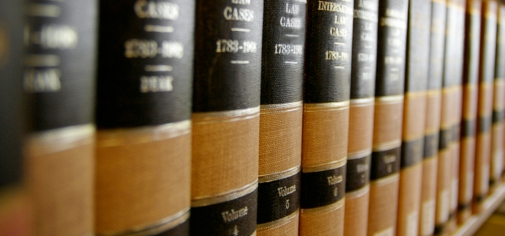Legal Terms and Definitions
Below are some commonly used legal terms:
Acquit/Acquittal: A finding that a person is not guilty of a criminal offence
Adjourn: To suspend court proceedings to a later time eg: if a court case cannot proceed when it comes before the court, it may be adjourned/remanded to a later date.
Affidavit: A sworn written statement made by a person to be used in a court. A person who makes an affidavit must swear on oath that the contents of the affidavit are true or make an affirmation that the contents are true. It is often used in court in place of, or in addition to, oral evidence.
Appeal: A procedure where a court decision is reviewed by a higher court. There must be valid grounds of appeal or the higher court will not take the case.
Arrest: The procedure where a person is taken into police custody and usually charged with a criminal offence.
Bail: The release of a person from custody following his/her signing of a bail undertaking, which is a promise to return to court on a date indicated by police or a magistrate.
Barrister: A lawyer who specialises in court appearances and providing written opinions. Barristers are usually engaged by a solicitor to provide expertise in one of the five criminal jurisdictions. In some courts barristers are required to wear wigs and gowns.
District Court: The District Court of Queensland is the state's intermediate court, between the Magistrates Court and Supreme Court. The District Court hears both criminal and civil matters. The criminal matters it hears are serious indictable offences such as burglary, rape, serious assault, armed robbery and fraud. The civil matters it hears involves amounts between $50,000 and $250,000. The District Court also hears appeals from decisions made in the Magistrates Court. Criminal matters in the District court use a jury to decide if the defendant is guilty or not guilty.
Lawyer: In Queensland, a Lawyer is a person who has received a practicing certificate from the Queensland Law Society. It allows the person to represent others and practice law in the State of Queensland. Lawyers are commonly defined as either Solicitors or Barristers.
Magistrates Court: The Magistrates Court deals with 95 per cent of all cases. It is the first place you will go if charged with an offence. This court has no jury and is run by a Magistrate (Judge) who makes all the decision. The Magistrate has the power to decide and ultimately issue penalties for simple offences and some indictable offence. If they so choose a Magistrate can decide a sentence up to three years.
The Magistrates Court is also responsible for hearing indictable offences (which will end up in the District or Supreme Court), and deciding if there is enough evidence against the defendant to move the case on to these courts.
Supreme Court: The Supreme Court is presided over by a Justice of the Supreme Court and is the highest trial Court in Queensland. It hears the most serious cases of murder, attempted murder, manslaughter and major drug offences. The Court hears the most serious criminal matters using a jury. The Supreme Court also hears all civil matters that involve amounts of more than $250,000.
Court of Appeal: The Court of Appeal is a division of the Supreme Court. Its role is to hear all appeal matters from decisions of the District Court, Supreme Court and many other tribunals. The Court of Appeal does not use a jury or hear entire cases, instead three or five judges consider only the important points of appeal and make a judgment.
The Judges listen to both sides and decide whether an error of law or was made or if an important fact was overlooked in the original proceedings.
The Court of Appeal has the power to dismiss the appeal, rendering the decision made by the previous court or tribunal the same, or allow the appeal and make a new order in replacement of the original decision.
The Court of Appeal also hears appeal against sentence from both sides. This means the Court has the ability to decrease or increase the length of the sentence.
High Court of Australia: The High Court of Australia is the highest court in the Australian judicial system. It's role is to interpret and apply the law of Australia, to hear and decide on cases that are of federal significance and to hear appeals from any of the other Courts in the nation.





